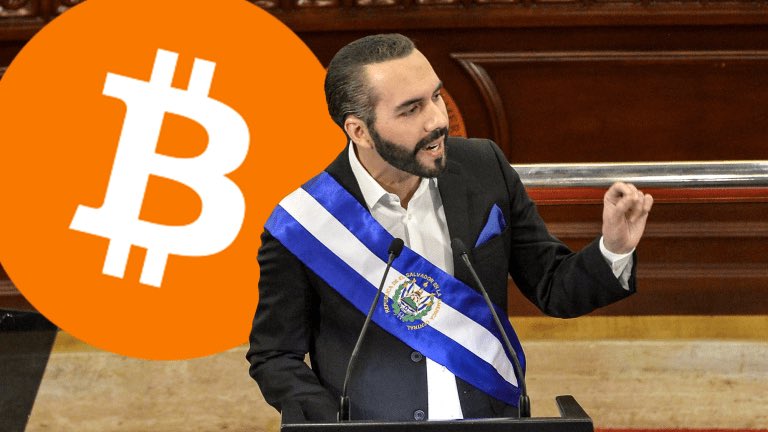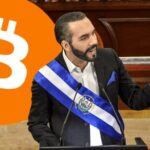In a turning point decision, El Salvador’s President Nayib Bukele has announced that the country will no longer rely on external debt to finance its budget. This move signals a significant shift in the nation’s financial strategy, marking a step towards economic independence and fiscal sustainability. As El Salvador has gained international attention for its forward-thinking policies, including becoming the first country to adopt Bitcoin as legal tender, this latest announcement is a bold declaration of financial sovereignty.
Breaking Free from External Debt
For years, many developing countries, including El Salvador, have relied on external borrowing from international lenders like the International Monetary Fund (IMF) and the World Bank to finance their national budgets. However, this dependence has often led to rising debt burdens and economic vulnerability. By ending its reliance on foreign loans, President Bukele aims to free El Salvador from the constraints and conditions typically imposed by international financial institutions.
In a public statement, Bukele emphasized the importance of achieving financial self-reliance and outlined his government’s vision to ensure that El Salvador can fund its projects and development goals using internal resources rather than borrowing from foreign entities. This decision comes at a time when the global financial landscape is facing increasing uncertainty, and nations are seeking alternative ways to achieve long-term economic stability.
A Turning Point for El Salvador’s Fiscal Strategy
Bukele’s announcement is a significant departure from traditional fiscal policies in Central America, where external borrowing has been a common practice. By focusing on a more self-sustaining budget, the El Salvadoran government aims to reduce its national debt while also taking control of its own financial destiny.
This move aligns with the country’s broader efforts to diversify its economy, attract foreign investment, and build financial resilience. In recent years, El Salvador has actively sought ways to strengthen its financial position, most notably through its Bitcoin adoption policy in 2021. By integrating cryptocurrency into the national economy, the government sought to promote financial inclusion, reduce reliance on traditional banking systems, and stimulate economic growth.
The Impact of Bitcoin on El Salvador’s Economy
One of the most striking aspects of Bukele’s financial strategy has been his administration’s bold embrace of Bitcoin. In 2021, El Salvador made history by becoming the first nation to declare Bitcoin legal tender, a decision that garnered both praise and criticism from the global community. The introduction of Bitcoin has been seen as an attempt to move away from the traditional dependence on external financing and as part of a broader vision to bring innovation and digital finance to the forefront of El Salvador’s economy.
The government has been vocal about its belief that Bitcoin can offer El Salvador a path to financial inclusion, especially for those without access to traditional banking. The country’s decision to mine Bitcoin using volcanic energy and build a Bitcoin City has also underscored the administration’s commitment to leveraging digital assets as a cornerstone of its economic development.
Challenges and Criticism
While Bukele’s decision to end external borrowing is a bold step towards economic independence, it does not come without its challenges. Critics have expressed concerns about how El Salvador will manage to meet its budgetary needs without external financing, particularly in the context of the COVID-19 pandemic and rising inflation rates. Additionally, the country’s Bitcoin experiment has faced scrutiny, with some arguing that it may introduce volatility into the national economy, especially if global cryptocurrency markets experience downturns.
However, Bukele has remained optimistic about the future, emphasizing that his administration’s focus is on long-term economic stability rather than short-term fixes. His government believes that by ending reliance on foreign debt, El Salvador can avoid the financial traps that many developing countries fall into when borrowing under strict repayment terms.
A Path Forward for Economic Sovereignty
President Bukele’s decision to stop borrowing from external sources is a bold declaration of financial sovereignty for El Salvador. By choosing a path of self-reliance, Bukele is challenging the traditional economic models that have governed developing nations for decades. His administration’s focus on building a self-sustaining budget and moving towards economic autonomy could serve as a model for other nations seeking to reduce their dependence on international loans.
While there are challenges ahead, Bukele’s vision for an independent El Salvador, free from the constraints of external debt, marks a turning point in the country’s economic trajectory. With a combination of internal resource management and innovative approaches like Bitcoin adoption, El Salvador is positioning itself as a leader in financial innovation and economic sovereignty.
Final Thoughts
As El Salvador moves away from external borrowing and toward a more self-sustaining economic model, the world will be watching closely to see how this bold strategy plays out. President Bukele’s announcement signals a new chapter for the country, one in which financial independence and innovation are at the core of its development plans.
The decision to eliminate reliance on foreign debt is more than just a fiscal change—it’s a powerful statement about the country’s determination to take control of its financial future. As El Salvador continues to make headlines for its unorthodox economic policies, it is clear that the Bukele administration is committed to charting its own course on the global stage.
QUEEN WHALE
Views: 3




